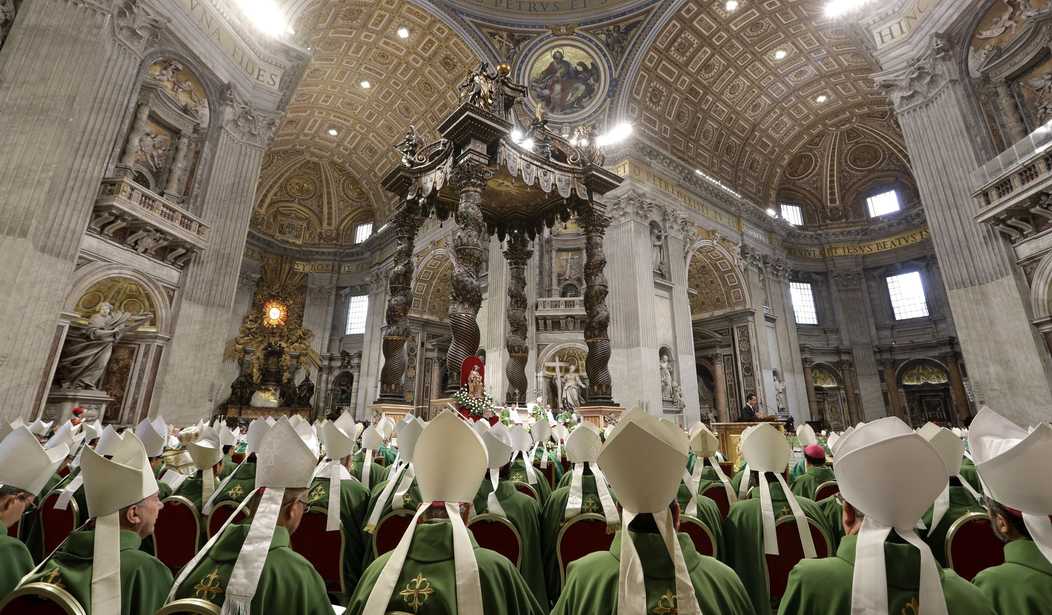On Friday, the 11-judge Seventh Circuit Court of Appeals ruled in favor of a Roman Catholic church in Chicago, striking down a former music director’s lawsuit after the church had fired him for violating Catholic doctrine by planning to enter a same-sex “marriage.” The court ruled that the First Amendment protected the church’s freedom to hire and fire the music director under the ministerial exemption, and that the court had no business adjudicating claims regarding a “hostile environment.”
“Worship is sacred. That’s why worship leaders who select and perform elements of worship are ministers of the faith, conveying its teachings to the faithful,” Daniel Blomberg, senior counsel at Becket, the religious liberty law firm that represented the church, said in a statement on Monday. “That’s also why the church—not the state—gets to make sure that its music ministers are directing its congregation in a way that’s faithful to its beliefs.”
In Sandor Demkovich v. St. Andrew the Apostle Parish (2021), the Seventh Circuit followed two essential principles from the Supreme Court cases Hosanna-Tabor v. EEOC (2012) and Our Lady of Guadalupe School v. Morrissey-Berru (2020): “The protected interest of a religious organization in its ministers covers the entire employment relationship, including hiring, firing, and supervising in between;” and “we cannot lose sight of the harms—civil intrusion and excessive entanglement—that the ministerial exception prevents.”
St. Andrew Parish hired Demkovich in 2012, employing him as a music director, a choir director, and an organist. These positions fulfill important religious roles in the church, as they involved Demkovich selecting music that is scripturally and traditionally appropriate for Masses and other sacraments.
As a minister in the church, Demkovich had a responsibility to uphold the teachings of the faith in word and action. But in 2014, the choir director told the church that he intended to enter a same-sex “marriage” with another man, in complete contradiction to 2,000-year-old Roman Catholic doctrine.
After the church fired Demkovich, he sued the church and the Archdiocese of Chicago for employment discrimination. A district court dismissed his suit, citing the ministerial exemption. Yet Demkovich filed an amended complaint, repackaging his discrimination allegations to claim that the church had created a hostile work environment. The district court granted some of his claims, ruling that the church had created a hostile work environment based on Demkovich’s disability status. A 3-judge panel of the Seventh Circuit also defended Demkovich’s claim, but the entire court reversed.
“Religion permeates the ministerial workplace in ways it does not in other workplaces. Ministers, by their religious position and responsibilities, produce their employment environment. From giving a rabbinic sermon on a Jewish holy day to leading a mosque in a call to prayer, ministers imbue a religious organization with spirituality,” the court ruled.
“Given a minister’s role in the religious organization’s practice of the faith, allowing hostile work environment claims here ‘intrudes upon more than a mere employment decision.’ Put differently, analyzing a minister’s hostile work environment claim based on another minister’s conduct is not just a legal question but a religious one, too,” the court ruled.
The court did not consider the merits of the hostile work environment claim, ruling instead that even adjudicating the case “would undermine this constitutionally protected relationship,” resulting in “civil intrusion upon, and excessive entanglement with, the religious realm.”
Although the Supreme Court has defined the ministerial exemption and strengthened it in recent years, lower courts have differed in their interpretation of the law. Some have claimed that the ministerial exemption does not apply to hostile work environment claims, but the Seventh Circuit Court of Appeals clearly stated that it does.
Recommended: Trans Lawyer Who Tried to ‘Correct the Errors’ of Jack Phillips’ Thinking Wins in Court — for Now
“The court ruled that the government can’t interfere in the ministerial relationship between a church and worship leaders,” Blomberg, the church’s lawyer explained. “It’s common sense that if the government can’t tell a church which ministers to hire or fire, it also can’t manage churches’ ministerial relationships in between.”
This ruling represents a clear victory for religious freedom amid increasing attacks on religious liberty.









Join the conversation as a VIP Member